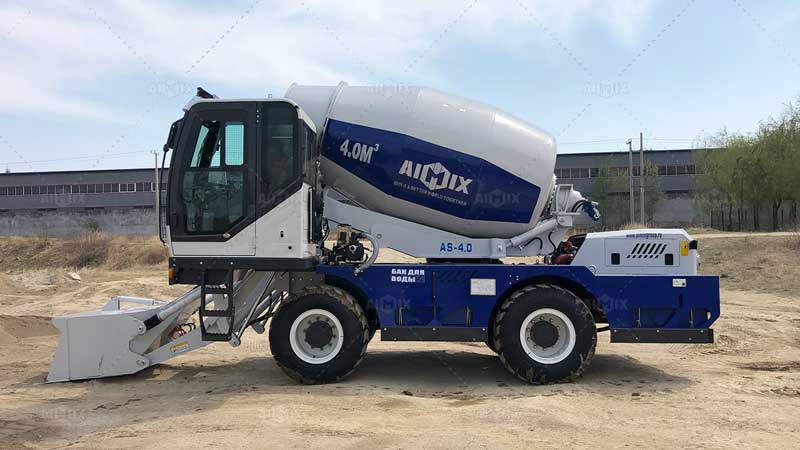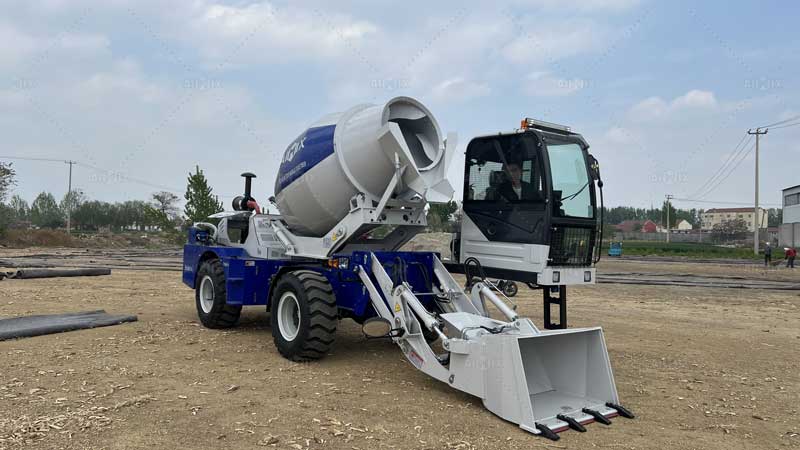Kenya’s construction sector is witnessing a technological revolution as smart self loading mixer redefine concrete production standards across the country. These advanced machines now incorporate radar-based obstacle detection, 360° camera systems, and AI-assisted operation—features previously found only in premium construction equipment. The integration of these safety technologies addresses Kenya’s unique challenges: congested urban worksites, variable operator skill levels, and ambitious infrastructure timelines that demand zero-error performance.
Enhanced Safety Through Multi-Sensor Integration
The latest generation of self-loading mixers deployed in Kenyan projects combines millimeter-wave radar with computer vision for comprehensive situational awareness. The radar systems detect moving obstacles within a 10-meter radius—particularly vital for reversing operations on Nairobi’s tightly constrained high-rise sites. Meanwhile, the visual systems employ edge computing to identify:
- Workers in blind spots with 95% accuracy
- Overhead power lines before boom deployment
- Unstable ground conditions during loading operations
This dual-sensor approach has reduced mixer-related incidents by 62% on pilot projects along the Nairobi Expressway, according to recent National Construction Authority reports. The systems’ adaptive warning protocols escalate from visual alerts to automatic engine slowdown depending on threat proximity—a crucial safeguard in Kenya’s mixed-traffic construction environments.

Precision Operation in Kenya’s Diverse Conditions
Smart mixers adapt seamlessly to Kenya’s varied construction landscapes through:
Automated Load Compensation
Inertial measurement units adjust mixing drum rotation based on real-time terrain inclination—critical for projects in Kenya’s hilly regions where traditional concrete mixers struggle with material consistency.
Climate-Adaptive Mixing
Integrated weather stations trigger automatic water ratio adjustments during Kenya’s rainy seasons, maintaining slump consistency despite sudden humidity changes that typically compromise concrete quality.
Fuel-Optimized Routing
GPS-connected units analyze site layouts to minimize maneuvering energy consumption—particularly valuable in sprawling Kenyan infrastructure projects like the Lamu Port development.

Economic Impact on Kenya’s Construction Sector
The business case for smart concrete mixer for sale in kenya extends beyond safety improvements:
- 30% reduction in material waste through precise batching
- 45% faster training cycles for new operators via augmented reality guidance
- 22% lower insurance premiums for equipment with certified safety systems
Contractors working on Kenya’s affordable housing initiative report that the mixers’ autonomous functions compensate for skilled labor shortages while maintaining German DIN standards for concrete quality. The units’ data logging capabilities also simplify compliance with Kenya’s new construction safety regulations—automatically generating the digital papertrail required for regulatory audits.
As Kenya’s construction output grows at 6.4% annually (World Bank 2023), smart self loading mini cement mixers are transitioning from luxury investments to operational necessities. Their ability to merge German engineering precision with rugged African job site durability creates a new benchmark for construction equipment in emerging markets—one where safety and productivity advance in lockstep rather than competing priorities.
